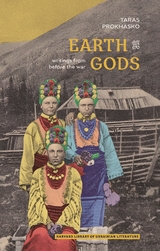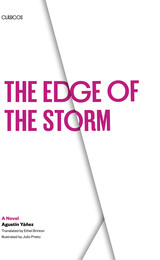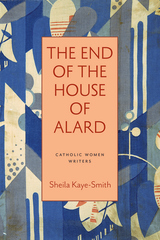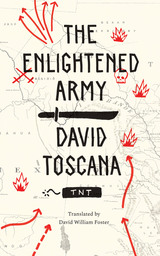6 start with E start with E

Earth Gods presents the early writings of Taras Prokhasko, one of Ukraine’s most prominent contemporary writers. Collected here for the first time in one book, these works span various genres yet form a single chronicle. Anna’s Other Days, Prokhasko’s first publication, testifies to the desire to free Ukrainian culture of overt influences of voices, styles, and genres that have dominated it for centuries. FM Galicia collects reflections delivered by the author at a Ukrainian radio show over a five-month period. Emphasizing the relevance of the oral genre as the origin of the text, Prokhasko has created a unique diary that strives to exist outside of literature and invites the reader to meditate on the human condition. The UnSimple—a novel whose action unfolds between the two world wars near Ialivets, in the Ukrainian Carpathian Mountains—documents the collapse of the grand narratives of the past, embodied here by the Carpathian earth gods who, despite their magical powers, are unable to save the patriarchal community they’ve been entrusted with from being overrun by the forces of modernization.
A master of reflexive, finely nuanced prose, Prokhasko weaves together narrative strands testifying to the sophistication and integration of Ukrainian culture with the world.

This tale of a repressive priest and his small Mexican village during the eighteen months preceding the Revolution of 1910 is a great novel, one that exposes the struggle between human desire and paralyzing fear—fear of humanity, fear of nature, fear of the wrath of God. Agustín Yáñez probes the actions of people caught in life’s currents, enthralling his readers with mounting dramatic tension as he shows that no power can forge saints from the human masses, that any attempt to do so, in fact, often has exactly the opposite result.
Yáñez brings to his work a deep understanding of people—his people—and he illuminates a great truth—that no one, anywhere, seems very strange when we understand the environment that has produced him or her.

After committing an irreparable crime, the narrator of The Emperor waits in his bedroom for the police to arrest him. His past reverberates inside of him like a drum: his youth spent in captivity as a zonbi, under the control of a charlatan Vodou leader, and many an alienating dawn delivering the daily newspaper through the cutthroat neighborhoods of Port-au-Prince, Haiti. He now has blood on his hands because of the woman on the bus—the only woman he had ever loved.
Part crime fiction, part fable gone awry, The Emperor invites readers to follow the narrator’s life as he moves from the Haitian countryside to the sprawling city, learning about the corruptible nature of power in his quest for freedom. Along the way, Makenzy Orcel blends the marvelous with the real by introducing readers to an unforgettable cast of characters including the Very Old Sheep, a deceitful Emperor, and the narrator’s so-called Enlightened Colleague. Written with Orcel’s distinctive verve, this novel offers readers a story set in contemporary Haiti that is rich in poetry and full of narrative intrigue.



READERS
Browse our collection.
PUBLISHERS
See BiblioVault's publisher services.
STUDENT SERVICES
Files for college accessibility offices.
UChicago Accessibility Resources
home | accessibility | search | about | contact us
BiblioVault ® 2001 - 2024
The University of Chicago Press









